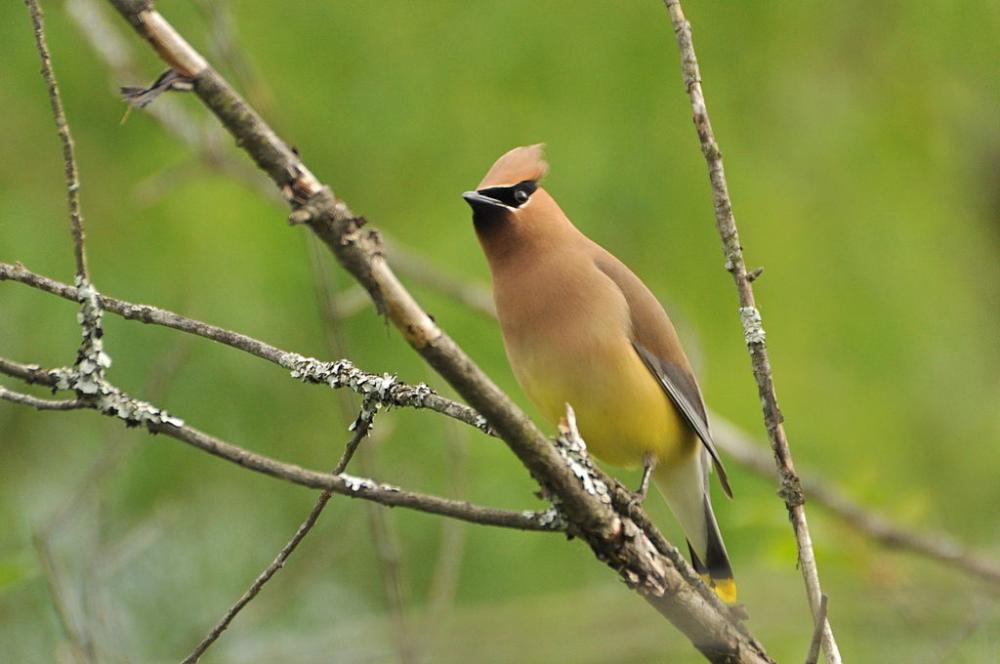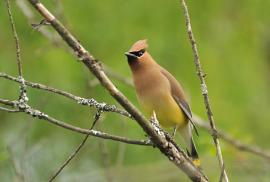Guide to Boreal Birds
Overview
Waxwings spend most of the year in flocks whose movements may be quite erratic. Hundreds will suddenly appear in an area to exploit a crop of berries, only to vanish when that crop is exhausted. Since the young are fed to some extent on small fruits, waxwings tend to nest late in the summer when there is a good supply of berries. Adults store food for the young in the crop, a pouch located in the throat, and may regurgitate as many as 30 choke cherries, one at a time, into the gaping mouths of the nestlings. In summer insects are also taken, the birds hawking for them like flycatchers. These social birds have the amusing habit of passing berries or even apple blossoms from one bird to the next down a long row sitting on a branch, until one bird eats the food.
Description
6 1/2-8" (17-20 cm). Smaller than a robin. A sleek, crested, brown bird with black mask, yellow tips on tail feathers, and hard red wax-like tips on secondary wing feathers. Almost always seen in flocks.
Voice
A thin lisp, tseee.
Nesting
4-6 blue-gray eggs, spotted with dark brown and black, in a bulky cup of twigs and grass placed in a tree in the open.
Habitat
Open woodlands, orchards, and residential areas.
Range/Migration
Breeds from southeastern Alaska east to Newfoundland and south to California, Illinois, and Virginia. Winters from British Columbia, Great Lakes region, and New England southward.



